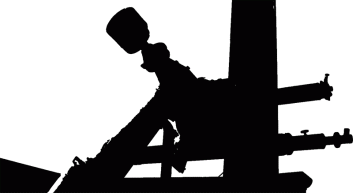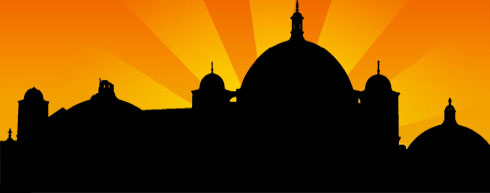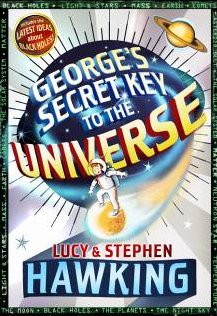Tea, Talk and Telescope
Patrick Moore Lecture Series




- Page Links
Want to know more about astronomy? Want to learn how to observe? Want to know what's currently in the sky?
Next Talk: Astrobiology - the hunt for alien life by Dr. Lewis Dartnell
Press Info
Want to know more about astronomy? Want to see the wonders of the Universe?
Information about our talks for the press.
Our 2014 Stargazing Live talk will be Astrobiology - the hunt for alien life by Dr. Lewis Dartnell on Thursday 23rd January, 2014.
Talk synopsis
'Astrobiology' is a brand new field of science, encompassing research into the origins and limits of life on our own planet, and where life might exist beyond the Earth. But what actually is 'life' and how did it emerge on our own world? What are the most extreme conditions terrestrial life can tolerate? And where in the cosmos might we reasonably expect to find ET? Join Dr. Lewis Dartnell on a tour of the other planets and moons in our solar system which may harbour life, and even further afield to alien worlds we've discovered orbiting distant stars, to explore one of the greatest questions ever asked: are we alone...?
Speaker Bio
Dr. Lewis Dartnell is a UK Space Agency research fellow based at the University of Leicester, studying how life, and signs of its existence, might survive the intense cosmic radiation on the surface of Mars. He also holds an STFC Science in Society Fellowship, and alongside his astrobiology research writes regular science articles in newspapers and magazines, and has appeared in TV shows such as BBC Stargazing Live, Wonders of the Universe and Horizon. He has published a popular science book introducing astrobiology, "Life in the Universe: A Beginner's Guide" and also an illustrated children's book with Dorling Kindersley, "My Tourists Guide to the Solar System".
Past Talks
Our Christmas 2013 talk was 2013 Space highlights and future challenges by Sue Horne MBE on Thursday 12th December, 2013.
Talk synopsis
As an Executive agency of the UK government the UK Space Agency (UKSA) are responsible for all space exploration from the UK, and are our representatives for all negotiations with other agencies. 2013 has brought with it a whole host of new space missions, many of which have caught the public imagination. Sue Horne MBE, the Space Exploration Programme Manager for the UKSA, will guide us through some of the highlights of these missions and discuss the future challenges that face the UK in furthering our space programme.
Our Christmas 2012 talk was How hot is the Universe? by Professor Trevor Ponman on Thursday 29th November, 2012.
Talk synopsis
Conditions here on Earth can give a very misleading picture of the Universe at large. How hot do you think most of the matter in the Universe is? In this talk we will take a quick look at what the Universe is made of. We will then explore what modern astronomy has revealed about the state of the atomic matter - the only component we understand - and we will ask how it got that way.
Our Autumn 2012 talk was Climbing the Distance Scale ladder to the Edge of the Universe by Dr Robin Catchpole on Thursday 4th October, 2012.
Talk synopsis
From parallax to redshift, astronomers have constructed a distance ladder, which provides the third dimension to our view of the universe and without which it would be impossible to compare theory with observation. In this lecture we will climb the ladder and on the way discover what is contained within our universe, including, stars, galaxies, black holes, dark matter and vacuum energy.
Speaker Bio
Dr Robin Catchpole, recently retired as Senior Astronomer at the Royal Observatory Greenwich, currently works at the Institute of Astronomy, Cambridge, and has been an astronomer all his life. He has authored and co-authored over 100 research papers and used a number of telescopes around the world including the Hubble Space Telescope. His research interests include the composition of stars, exploding stars, the structure of our Galaxy and galaxies with black holes at their centres. He has given many lectures and radio and TV interviews.
Our Spring 2012 talk was Small Problems with the Universe - is Physics letting us down? by Professor Mike Cruise on Thursday 22nd March.
Talk synopsis
The Universe is being explored with increasingly sophisticated instruments and techniques and yet there still remain fundamental questions about the laws of Physics that govern its existence and evolution. This talk will discuss our present view of the Universe and the areas of Physics that are causing uncertainty and how these may be investigated.
Speaker Bio
Professor Mike Cruise has had a long and distinguished career in astronomy starting in the Millard Space Science Laboratory at University College London. In 1986 he left UCL to go to the Rutherford Appelton Laboratory, subsequently becoming the Associate Director for Space. In 1995 he was appointed to a chair at the University of Birmingham, followed by five years as Head of School. He then spent another five years as Pro Vice Chancellor for Research and Knowledge Transfer. Through his career Mike Cruise has contributed significantly to a number of Space missions including Skylarks 921, 922, 821, 822, 1104 Ariel V, Ariel VI, Hipparcos, AMPTE, ROSAT, Spektrum Roentgen Gamma, SOHO, Cluster, XMM-Newton, STEREO, LEGRI, SMEI. LISA Pathfinder and LISA.
Our Autumn 2011 talk was "From Barsoom to Pandora: Science Fiction and Astronomy in dialogue" by Alastair Reynolds, held on Thursday 24th November at 7:30pm.
As a former scientist, and now full-time science fiction writer, I'm fascinated by the way science and science fiction have been in dialogue with each other. Although it's mostly the case of science influencing science fiction, the traffic hasn't been entirely one-way. I will discuss some of the changes in science fiction over the last century or so, with a particular emphasis on space-based fiction, and the impact of astronomical ideas (such as our understanding of the solar system, and our wider place in the universe) on those books and stories.
Speaker Bio
Alastair Reynolds, former scientist and now full-time writer. Most of what he write is science fiction, with a strong concern for scientific verisimilitude (although he is prepared to break the rules for the sake of a good story).
Our Autumn 2009 talk was "Travel through space with Lucy Hawking - George's Cosmic Treasure Hunt" on Wednesday 7th October at 6.30pm (with coffee and tea at 6pm)
Explore the wonders of the Universe with author Lucy Hawking as she presents a young person's guide through the galaxy! Lucy will be talking about her latest book, `George's Cosmic Treasure Hunt,' the follow-up to the brilliant 'George's secret key to the universe'. Discover the mysteries of physics, science and the universe with George, his new friends next door - the scientist Eric and his daughter, Annie - and a super-intelligent computer known as Cosmos, which can take them to the edge of a black hole and back again. Learn more here.
Speaker Bio
Lucy Hawking studied French and Russian at the University of Oxford. She is the author of two adult novels, and has written for the Daily Mail, the Telegraph, The Times and the Evening Standard. She has been a guest presenter and regular contributor on radio. Lucy's first children's novel George's Secret Key to the Universe was published by Doubleday in September 2007. Written in collaboration with her father, the Lucasian Professor of Mathematics and Theoretical Physics at Cambridge, Stephen Hawking, this humorous science fiction adventure introduces its young readers to concepts of science non-fiction, and has been described as `a true beginner's guide to A Brief History of Time' Publishers Weekly, as well as `a terrific page turner' Education Today. The success of this marriage between theoretical physics and comic children's fiction can be seen in its sales figures: 100,000 copies sold in hardback. George and the Cosmic Treasure Hunt, Lucy's second children's book, will be published by Doubleday in April 2009.
Our spring 2009 talk was "Poetry of the Night: A marvellous union between science and literature" by David H. Levy on 9th March 2009 at 7:30pm (with coffee and tea at 7pm)
On October 2, 1605, Londoners were treated to an almost total eclipse of the Sun at around the same time that Shakespeare's King Lear was exploring humanity's relation to the cosmos. "These Late Eclipses in the Sun and Moon" (a passage from the play) begins a sophisticated discussion of that relation, based on real events in the night sky. This is just one example of the richness of astronomical allusions in English Literature that will be explored in this presentation.
Speaker Bio
David H. Levy was born in Montreal, Quebec, Canada, on May 22, 1948. He developed an interest of astronomy at an early age in his life. However, he pursued and received bachelor's and master's degrees in English literature. Levy has discovered 22 comets, either independently or with Gene and Carolyn S. Shoemaker. He has written over 30 books, mostly on astronomical subjects such as The Quest for Comets and his tribute to Shoemaker in Shoemaker by Levy. Also, he has provided periodic articles for the magazines Sky and Telescope and Parade Magazine. Periodic comets that Levy co-discovered include P/2006T1, 118P/Shoemaker-Levy, 129P/Shoemaker-Levy, 135P/Shoemaker-Levy, 137P/Shoemaker-Levy, 138P/Shoemaker-Levy, 145P/Shoemaker-Levy, and 181P/Shoemaker-Levy. The science writer is most famous for his co-discovery in 1993 of Comet Shoemaker-Levy 9, which collided with the planet Jupiter in 1994.
Our Christmas 2008 talk was "Mirror images, antimatter and time reversal" by Prof Peter Kalmus OBE (QMUL) on 4th Dec at 7:30pm (with coffee and tea at 7pm)
Talk synopsis
We explore, without mathematics, the three symmetries implied in the title. These are important in science, particularly in particle physics. At the microscopic level, the laws of mechanics and electromagnetism appear to be perfectly symmetrical, but the symmetry is broken by the weak interaction, the force that allows the Sun to shine. We explain how symmetry breaking could help us to avoid being annihilated by a science-fiction antimatter alien from another world. Again at the microscopic level there is a small asymmetry between the forward and backward directions of time. On larger scales however the direction of time is crucial, and time-reversed systems generally lead to absurd situations.
Speaker Bio
Peter Kalmus has carried out experiments at accelerators in the UK, USA, Germany and CERN. He has taught physics from A-level up to postgraduate courses. He received the Rutherford Medal for his contributions to the discovery of the W and Z particles, which provided the experimental evidence that electromagnetism and the weak interaction were aspects of the same force. He has also received the Kelvin Medal, and the European Physical Society Outreach Prize.
Some of these talks were funded by a Science and Technology Facilities Council Grant and others (2009) were funded by a Royal Astronomical Society Grant.
